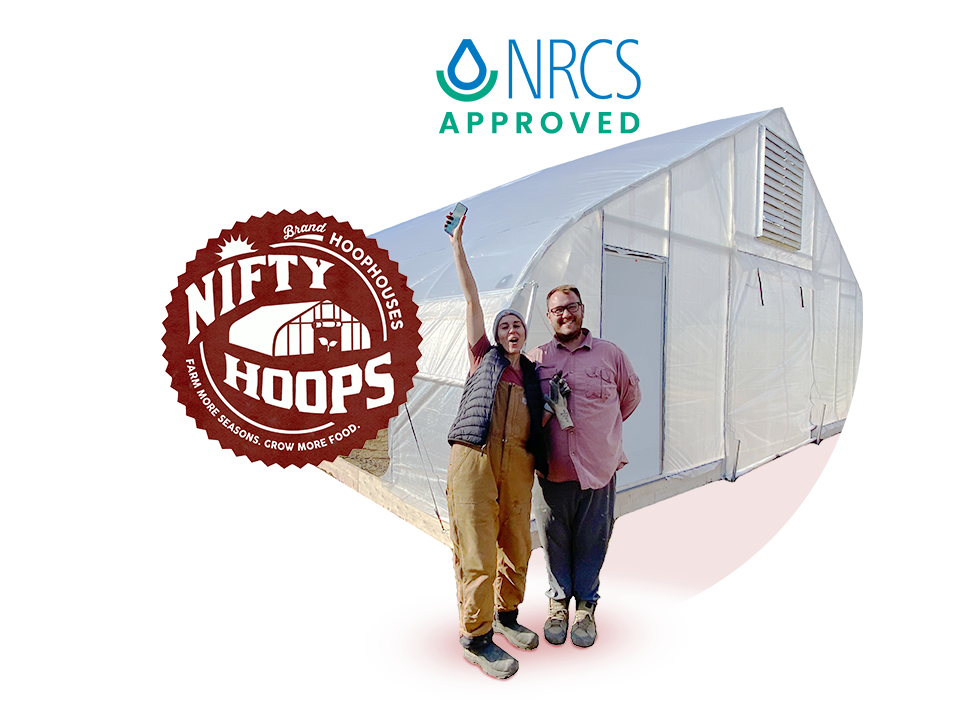Nifty Hoops manufactures and builds hoop houses and high tunnels for farmers.
We have invented an ideal system for fabricating, delivering, building, and servicing these structures anywhere in the country. Our hoop houses are built to withstand brutal northern winters, are rich with features like roll-up sides, automatic venting, and plenty of access, and come at a price that makes us an easy choice.
We are doing this work because we care about the future of food in our country. We are fighting to create a more secure food system in which farmers engage in more localized food economies, earning a living that makes farming possible and profitable.








